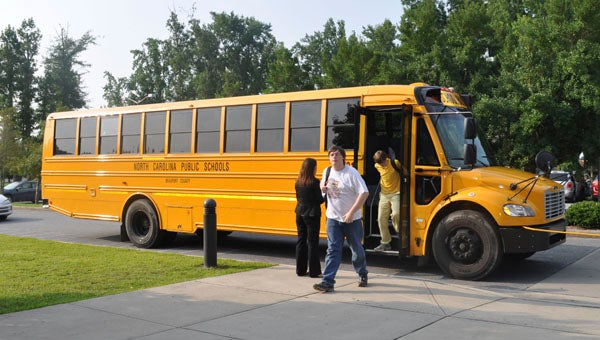There’s a lot of doubt
Published 7:50 pm Monday, August 25, 2014
This week a North Carolina Superior Court judge struck a blow against a General Assembly plan to use $10 million dollars for school vouchers, funding scholarships to underprivileged children to attend private schools in the state. The $10 million would fund approximately 2,400 students, at a maximum of $4,200 each.
According to the majority-GOP legislature, school vouchers offer children from low-income families an opportunity to get a better education at private schools —especially those who believe that public schools have failed to provide a good education. No doubt that might be the case for some.
Judge Robert Hobgood put a kibosh on the voucher program, leaving lots of children in classroom where they may not be able to finish the year and lots of parents scrambling to figure out how to pay tuition for the school year that’s already started.
While that may be unfortunate for those children and families, Hobgood’s ruling shines a spotlight on a few problems with the school voucher issue.
Private schools don’t have to meet public school regulations, nor do they have to give state exams. There would be minimal oversight of how well voucher students were doing in their new school environment — whether they were flourishing or failing — and there’s no state law that requires the staff to teach voucher students anything at all, according to Hobgood. There’s no doubt that any program needs oversight, simply to tell whether it’s working or not.
North Carolina parents who applied for school vouchers were allowed to make top picks of schools where they’d prefer to send their children. It’s unsurprising that the majority of schools requested were religious schools. Two of the top three schools picked were Greensboro Islamic Academy and Al-Inman School in Raleigh. There’s no doubt that many of the same people who would support a taxpayer-funded Christian education for some students would object heartily to taxpayer money funding Islamic schools for others. There’s also no doubt the taxpaying atheists among us would object to funding either.
Last spring, at a North Carolina Association of Educators-hosted forum held at Washington High School, one of the candidates in the upcoming election brought up another point about the voucher system: there are private schools operating in North Carolina that are based out of state. The money they would receive from the legislature to send a voucher scholarship student to those schools would be funneled directly out of state, he said. There’s no doubt that North Carolinians aren’t too anxious to allow their tax dollars out of state to line the pockets of private-school owners.
There’s no doubt also that the voucher system has some real problems that aren’t as easily summed up as the phrase “Opportunity Scholarships.”





